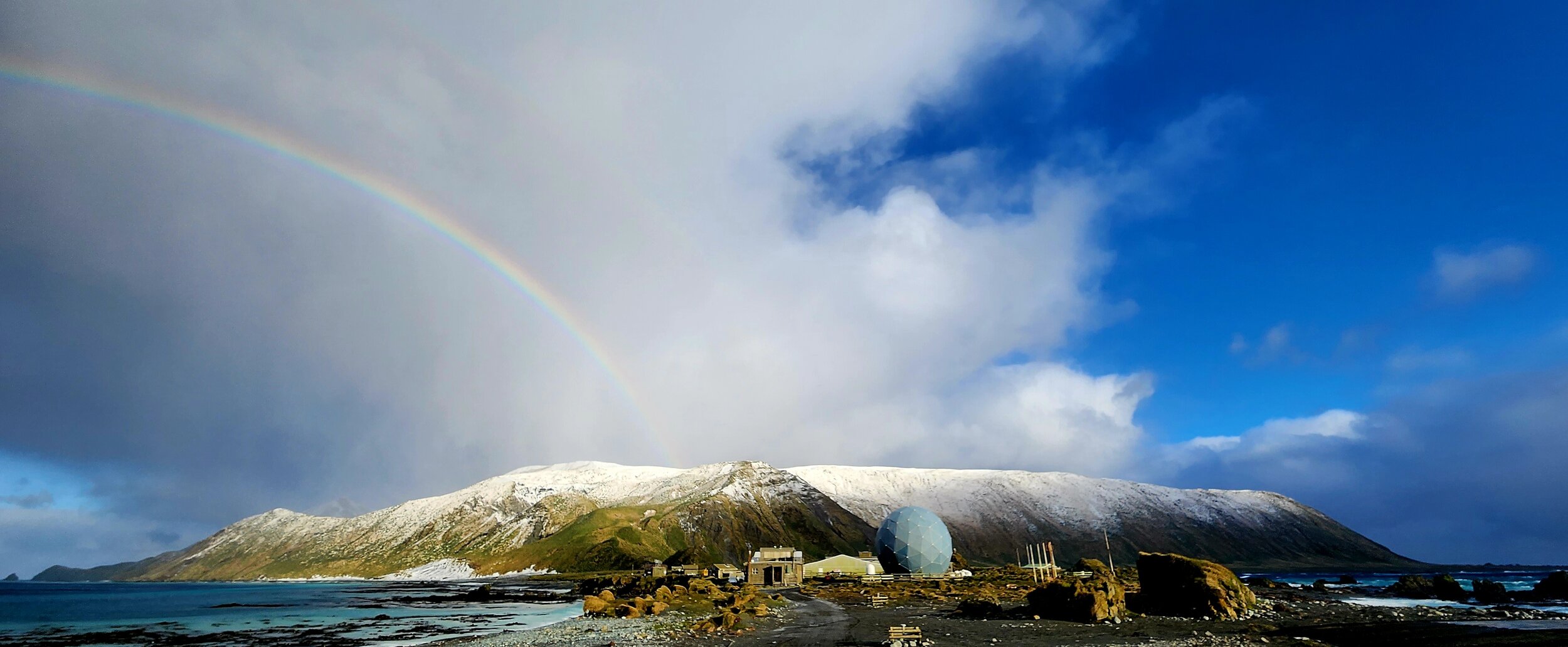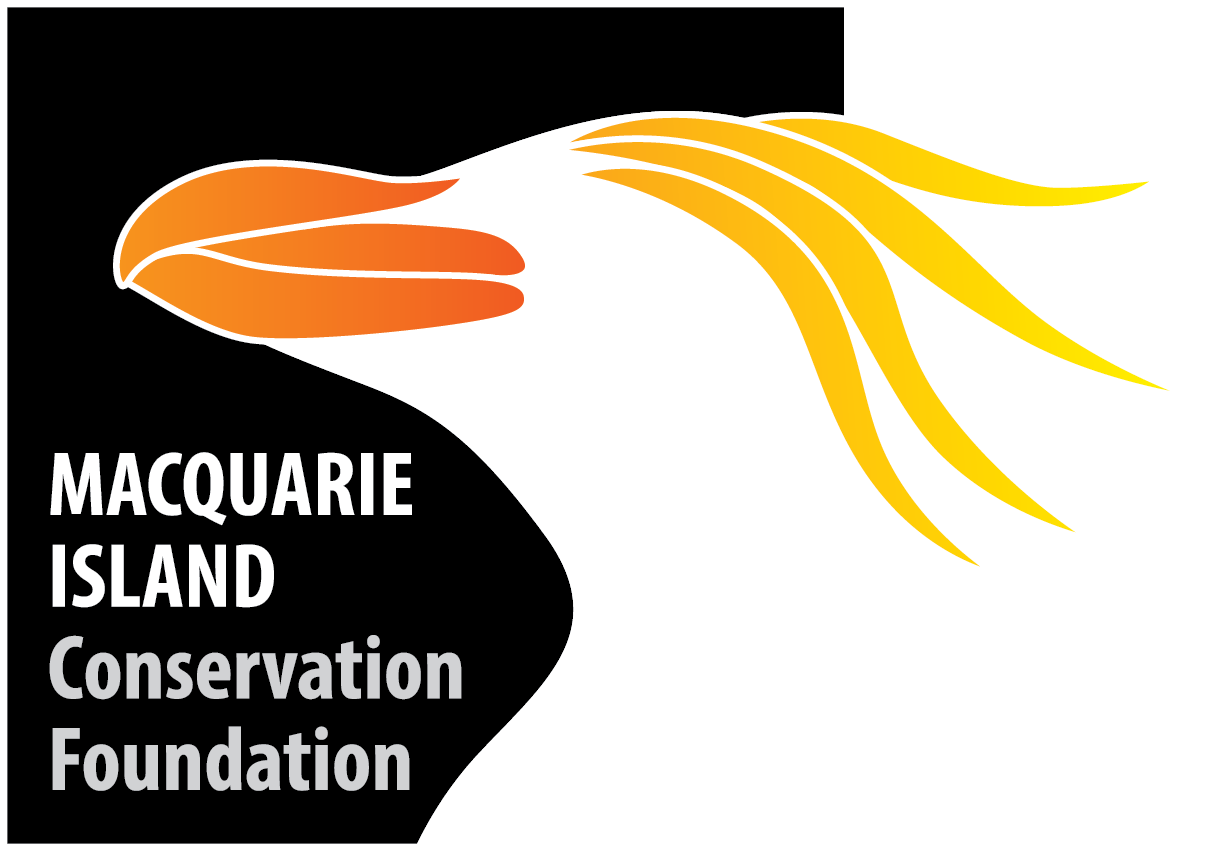
Supported Projects
Photo: Greg Mercer
MICF Grants - 2025
Penguin foraging behaviour in the Macquarie Island Marine Park
University of Tasmania & Australian Antarctic Division - Project Lead Ms Jaslyn Allnut
Climate change is causing rapid oceanographic changes, leading many marine species to adapt their behaviour to find sufficient resources to raise young and survive. The objective of this project is to investigate the at-sea distribution and behaviour of the four penguin species breeding on Macquarie Island. We will collect at-sea distribution data through the deployment of GPS trackers with depth sensors and collect data on diet and breeding success. We will assess the environmental drivers of behaviour at-sea, and the influence this might have on processes impacting population trends, such as breeding success.
The specific research outcomes of the project are:
Identification of the key foraging areas for each of Macquarie Island’s penguin species.
An understanding of the habitat features, and environmental conditions used for foraging.
New insights into the factors influencing breeding success.
An understanding of the impact changing ocean conditions are having on Macquarie Island’s penguin species.
Illuminating sub-Antarctic benthic biodiversity: using ROVs to explore remote marine ecosystems
University of Western Australia - Project Lead Dr Paige Maroni
This pioneering project will conduct Remotely Operated Vehicle (ROV) dives down to depths of 100 m, to document unknown marine species, assess the health of the Macquarie Island’s benthic systems, and raise awareness regarding the importance of understanding our precious sub-Antarctic Islands. This project will also span across consecutive expeditions and visit multiple sub-Antarctic islands, allowing us to assess the connectivity of Macquarie Island’s benthic systems within the broader region allowing us to better understand its ecological significance. These comparisons will help determine Macquarie’s role as a population source for diverse species and as a potential migration route for climate vagrants, providing essential insights for regional conservation strategies.
We will generate baseline biodiversity data and produce detailed photogrammetric reconstructions of habitats and species. These engaging dives will also be used to promote awareness of the region’s unique ecosystems. The data collected will empower policymakers and conservationists to make informed, evidence-based decisions for the protection of Macquarie Island.
Image - Supplied Paige Maroni
Grant supporters
The 2025 MICF Grants were made possible thanks to our major supporters, including the PONANT Foundation and Aurora Expeditions

MICF Grants - 2024
Full project outcomes will be reported in mid-2025.
Hidden Interactions of Sub-Antarctic Ecosystems: Using Stable Isotopes to Examine the Terrestrial Food Web and Nutrient Flows of Macquarie Island
Kita Williams, Dr Justine Shaw (Queensland University of Technology and Securing Antarctica’s Environmental Future) & Prof Jennifer Fern (Queensland University of Technology)
This project examined the Macquarie Island ecosystem, and how it is recovering following the successful vertebrate pest eradication program 10 years ago.
The three main approaches included:
Examination of nutrient flows through the ecosystem, using stable isotope analysis of soil, plant, and invertebrate samples.
With a focus on invertebrates, using stable isotopes to construct the food web to fill a gap in our knowledge of invertebrate interactions and ecosystem functioning.
Examination of the impact of non-native invertebrates such as isopods, aphids and blowflies, in the changing structure of the Macquarie Island terrestrial food web.
Results and outcomes
Preliminary results indicate that some sites on Macquarie Island have different δ15N values, and this difference generally occurs across soils, plants, and invertebrates. Coastal sites tend to be more enriched in 15N, while higher elevation sites on the plateau are nutrient poor. Plants such as Acaena magellanica, Poa foliosa, and Stilbocarpa polaris have higher δ15N values at sites near bird colonies. This indicates marine-derived nitrogen inputs from bird guano, which is then taken up through the ecosystem.
Initial invertebrate samples also indicate variation between sites, such as rove beetles which have higher δ15N values at the coastal site compared to other locations, and the non-native isopod which is more enriched in nitrogen at the coast than at the higher elevations.
This research improves our knowledge of invertebrate ecology, the impacts of invasive species, and nutrient flows within island ecosystems. The findings of this project will support ecosystem monitoring, management, and biosecurity measures, which are fundamental to the conservation of the island.
Photos: Kita Williams
Rockhopper diet and trophic position, a 67-year comparison
Assoc. Prof Patti Virtue (University of Tasmania) &
John van den Hoff (Australian Antarctic Division)
Populations of Rockhopper penguins, including those on Macquarie Island have been declining globally. Changes in ocean surface temperature, influenced by climate change, have led to reduced prey abundance, affecting the penguins' food supply and resulting in poor reproductive success or higher mortality rates of juveniles or adults. The Rockhopper penguin is facing significant challenges to its survival in the wild.
This project used stable isotope analysis to compare historical Rockhopper penguins’ eggshells collected in 1953 with those collected in present day populations in 2020 to better understand the factors affecting the decline of Rockhopper penguins on Macquarie Island.
Results and outcomes
Rockhopper penguins’ trophic level has remained broadly similar over 70 years, but they now consume prey linked to offshore or lower–δ¹³C food webs.
Amino acid data suggest both subtle trophic shifts and metabolic changes, pointing to altered diet quality and physiology.
Climate-driven warming of foraging waters and changes in prey distribution likely underpin these dietary shifts.
Divergences between bulk stable isotope analysis and amino acid stable isotope analysis highlight the importance of compound-specific approaches for resolving changes in predator–prey dynamics.
The findings reinforce concerns that climate change is impacting food availability and quality for rockhopper penguins, potentially contributing to their population declines.
Diversity of the Macquarie Island intertidal macrofauna
Dr Quentin Jossart (Université de Bourgogne – France), Dr Jonathon Stark &
Dr Glen Johnstone (Australian Antarctic Division)
The intertidal zone (seashore) is a critical and important area at the interface between marine and terrestrial habitats. However, this zone remains biologically underexplored in the Southern Ocean. Macquarie Island, located at the crossroad between Antarctica, New Zealand and Tasmania, is one of the least explored intertidal areas on the planet.
At Macquarie Island, the first intertidal inventories were undertaken during legacy expeditions (such as the Australasian Antarctic Expedition in the 1910’s and the British Australian & New Zealand Antarctic Research Expedition in 1931). While there have been some more recent studies in the 1960’s, 1970’s and early 2000’s, the inventory of the island’s intertidal zone remains very limited compared to terrestrial or deeper marine investigations.
This project evaluated the diversity of Macquarie Island intertidal communities and determined the faunal relationship with other areas of the Southern Ocean using an integrative community-based approach.
Results and outcomes
We have identified intertidal Macquarie specimens that were collected during the last decade. This investigation was done in an integrative way, using both morphology (classical taxonomy) and genetics (DNA barcoding). We found at least 30 different species belonging to annelids, cnidarians, crustaceans, echinoderms, flat worms, molluscs, ribbon worms, sponges or tunicates. This inventory will be put in a broader geographical perspective, and all the occurrences, data and metadata will be published in both a short publication and public databases.
This is work helps us determine the origin and evolution of these unique communities, and more practically, to assess their current vulnerability to the multiple effects of global changes..
Grant supporters
The 2024 MICF Grants were made possible thanks to our major supporters, including the PONANT Foundation, and generous donors.
Photos: Copyright Belgica 121 Expedition – Quentin Jossart








